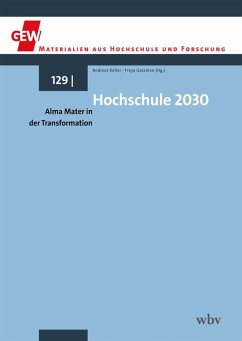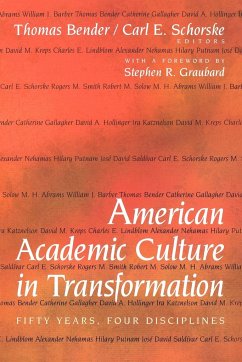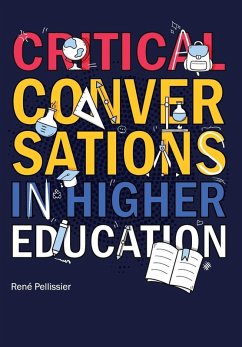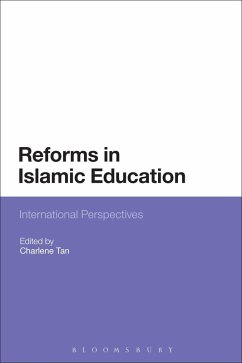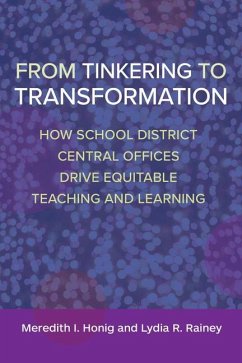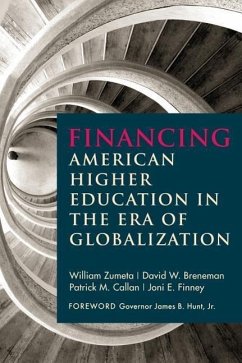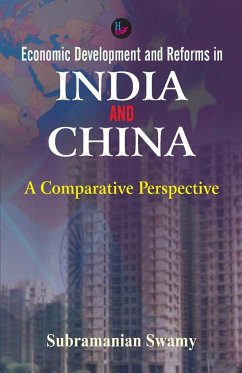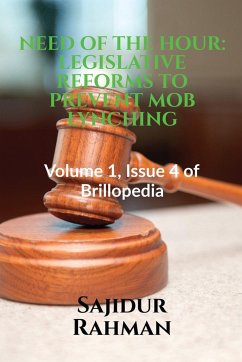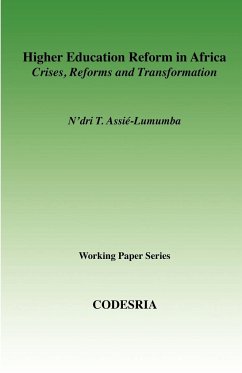
Higher Education in Africa. Crises, Reforms and Transformation
Versandkostenfrei!
Versandfertig in 1-2 Wochen
49,99 €
inkl. MwSt.

PAYBACK Punkte
25 °P sammeln!
This book provides theoretical tools for analysing contemporary African higher education systems and institutions. It also examines policy challenges and the prospects for social progress. It points to critical areas of investigation for the CODESRIA Multinational Working Group (MWG) research network on higher education. Conceived as a background text for this network, the book traces the historical roots and the global factors of the African higher education crises and the search for transformation to address issues of legitimacy and relevance. It analyses the origins, nature, and mission of ...
This book provides theoretical tools for analysing contemporary African higher education systems and institutions. It also examines policy challenges and the prospects for social progress. It points to critical areas of investigation for the CODESRIA Multinational Working Group (MWG) research network on higher education. Conceived as a background text for this network, the book traces the historical roots and the global factors of the African higher education crises and the search for transformation to address issues of legitimacy and relevance. It analyses the origins, nature, and mission of African higher education, the problems associated with cultural colonization and the dependency trap, the local/global nexus in the crises with a special attention to the structural adjustment programmes (SAPs), and the various waves of reforms and innovations. Furthermore, the book presents a synopsis of studies that were conducted on the crises, highlighting both their findings and recommendations. The new challenges within the global and local objective conditions of globalisation, the debt burden, the disruptive impact of violence and armed conflicts, and human resource loss due to HIV/AIDS and brain drain are also discussed. Finally, the book examines the potential for higher education as a public good to promote structural change by productively using African assets including indigenous knowledge within a philosophy of fusion, and Africans in the Diaspora. It argues for the need to vigorously engender African higher education, and creatively appropriate new opportunities such as the selective use of information and communication technologies and decolonized partnerships in the global context. N'Dri T. Assié-Lumumba is a Fellow of the World Academy of Art and Science. She was trained as an educator (comparative education: economics and sociology), a sociologist and historian. She teaches at the Africana Studies and Research Center, Cornell University, USA. Professor Assié-Lumumba has published extensively on higher education, educational systems, gender, women and development issues. Her works cover the use of information and communication technologies for education delivery, and critically address issues of continued domination and exploitation in the transfer of technology from the North to the global South and the social reproduction of gender inequality through the use of technology in educational processes. Her publications include: Les Africaines dans la politique: femmes Baoulé de Côte d'Ivoire (L'Harmattan: 1996); African Voices in Education, co-edited (Juta: 2000); and Cyberspace, Distance Learning, and Higher Education in Developing Countries, edited (Brill: 2004).





